


St Ivo Geography Department Online Portal
“Geography is the subject which holds the key to our future” -
Head of Department -
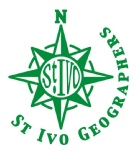

British Values in the Geography Department
The DfE have an expectation on all schools “to promote the fundamental British values of democracy, the rule of law, individual liberty and mutual respect and tolerance of those with different faiths and beliefs”.
At St Ivo we reinforce these values regularly throughout the school curriculum as set out on the whole school website. With the nature of our particular subject and its curriculum, the geography department is well placed for doing our part in contributing to the whole school ethos in promoting ‘British Values’
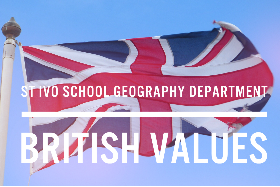
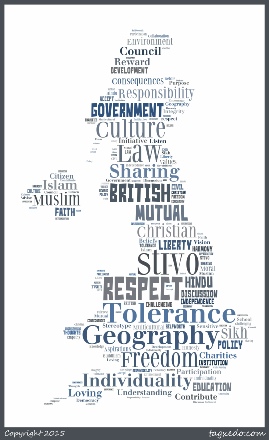
Key Links:
St Ivo School British Values Statement

This is our school latin motto “Labore Omnia Florent”-
At St Ivo we believe in ‘Fulfilling Potential’ by being: Responsible, Respectful, Resilient, Resourceful, Reflective
The following provides an overview of how St Ivo Geography Department promotes British Values through an embedded approach within the design of our curriculum. These are also displayed clearly within the department itself and are written from the perspective of what students can expect in Geography.
DEMOCRACY
In Geography we...
- have respect for democracy and the right of all our fellow students to have their voices heard
- encourage everyone to feel confident in expressing their ideas and opinions in class discussions
- treat others how we would want to be treated
- are involved in decision making through the use of student voice and feedback to our teachers
- are involved in discussions regarding our learning
- have opportunities to experience the importance of decision making (e.g. Montserrat decision-
making hazard management simulation in Year 9) - are encouraged to set our own targets for improvement
- have opportunities to undertake self assessment
- have the opportunity to explore and discuss injustices and inequalities (perceived or real) and challenge and debate these through the exploration of geographical topics (e.g. apartheid in South Africa (during visits to Soweto), study of the One Child Policy -
China) - have the opportunity to explore and consider different opinions and how voices are heard (e.g. study of NGO's such as Greenpeace and NIMBY issues such as the location of wind farms).
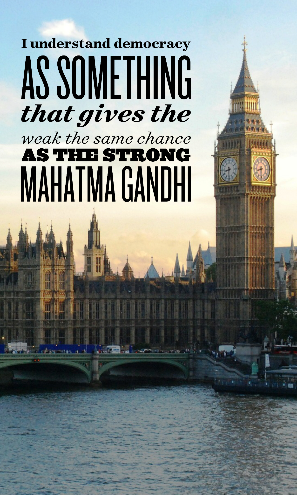
THE RULE OF LAW
In Geography we...
- follow rules in our classroom to protect the rights of all us to an education
- uphold whole-
school policies with regards to homework, uniform etc. - have opportunities to explore and understand how governments have influenced and shaped nations through law (including the study of population policies in China and Singapore)
- explore the ways in which policy making at a local and global scale can influence both the physical and human landscape (e.g. the National Parks Act -
1949; legally binding commitments of the Kyoto protocol etc; EU law - e.g. Common Agricultural policy) - have the opportunity to explore and understand geography of crime at global and local scales (e.g. in our Year 9 scheme of work)
- explore and evaluate the outcomes of meetings of governments and policy makers (e.g. Climate Change Conferences)
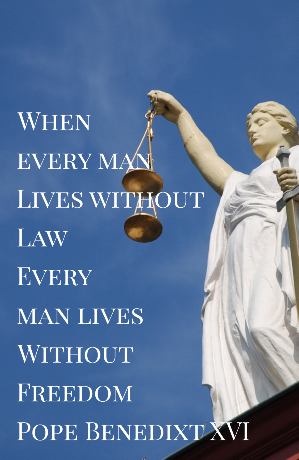
LIBERTY
In Geography we…
- are able to have a freedom of expression whilst respecting others during contributions to class discussions
- are encouraged as much as possible to develop our independent learning skills to help us take control of our own learning .
- have opportunities to critically examine our own values and attitudes (in debating issues, contributing in class etc.)
- have an opportunity to explore issues surrounding human rights (e.g. migration, refugee crisis, fairtrade etc.)
- have opportunities to be involved in extra-
curricular activities (e.g. Geography Club, trips, Eco- Ivo, Sixth Form Ambassadors etc.) - have freedom of choice of whether to continue our studies of Geography at GCSE and A'level
- have the opportunity to self-
assess and peer- assess our work - take ownership of our behaviour in lessons
- are encouraged to take pride in our own work in lessons
- are given opportunities to challenge ourselves and make progress with our learning (including having access to stretch and challenge tasks)
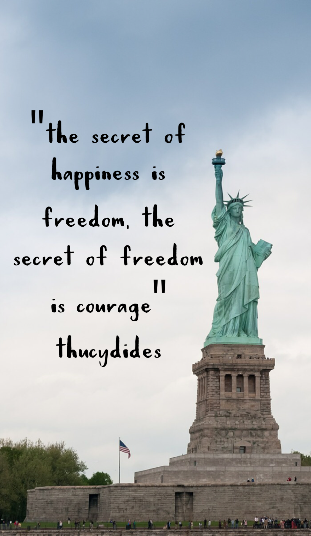
MUTUAL RESPECT
In Geography we...
- are encouraged to debate, share and respect the opinions of others in our classroom discussions
- have opportunities to understand our responsibilities to conserve resources and play our part in sustainable development (this includes our studies of climate change in Year 10 and our consideration of how we can reduce own carbon footprints)
- have the opportunity to be part of the Eco-
Ivo team with responsibility for promoting environmentally practice across our department , school and wider community. - are encouraged to act on our geographical knowledge about others in our global community (through our study of fair-
trade and participation in fair- )trade fortnight - are encouraged to share our geographical knowledge about others in our global community (e.g. our Sixth Form Geography Ambassadors visit primary schools to raise the profile of fairtrade)
- we are encouraged to play our part as global citizens (e.g. through our studies of globalisation in Year 8)
- explore how places, peoples, cultures and economies are interrelated (e.g. in our study of Japan in Year 7 through to the role of the government, clash of Western culture with indigenous tribes and the influence of the economy in managing issues of deforestation in Year 13).
- are taught to respect people's lives and empathise with those affected by disasters and conflict (e.g. we wrote to Japanese school children to express our support following the Japanese Tsunami in 2011).
- show respect for each other in our behaviour and manners
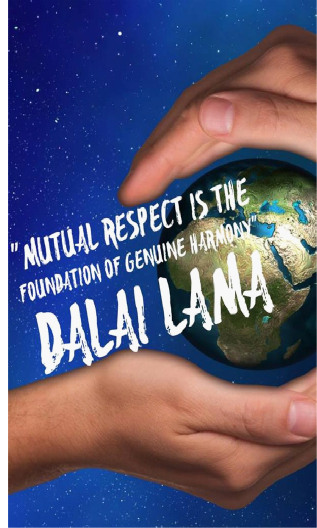
The fundamental ‘British values’ defined by the DfE are:
(1) DEMOCRACY -
(2) THE RULE OF LAW -
(3) INDIVIDUAL LIBERTY -
(4) TOLERANCE and MUTUAL RESPECT -
TOLERANCE
In Geography we…
- understand the importance of identifying and combating discrimination including tackling stereotypes (e.g. in our studies of Japan in Year 7 and in exploring HICs and LICs throughout the geography curriculum)
- develop our understanding and respect for different cultures through our studies of place and people in both our classroom studies (e.g. Africa -
Yr 8 and Japan - Yr 7) and through our extra- curricular experiences such as trips to Iceland and South Africa. - learn to understand and respect the traditions of other cultures (for example through our study of the Yanomami Indians in Yrs 9 and 13).
- have opportunities to experience other cultures (e.g. Taikko drumming -
Year 7; visits abroad etc.) - belong to many different faiths and respect the faiths of those around us (we draw on examples from across the world in our studies, including amongst others Japan, China, Kenya, Bangladesh, USA, South Africa, Iceland)
- are taught to respect and understand diversity in life in other countries (for example our fund raising and visits to Mbuyisa Makhubu Primary School in Soweto)
- celebrate the cultural diversity of our school (through our learning environment)
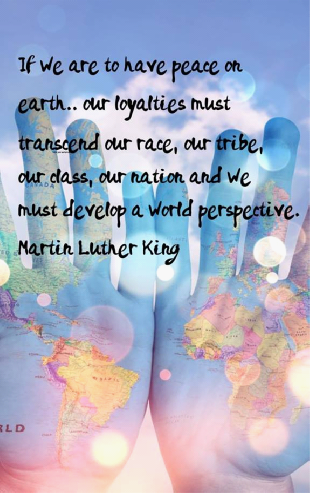 About Us
Contact Us
About Us
Contact Us